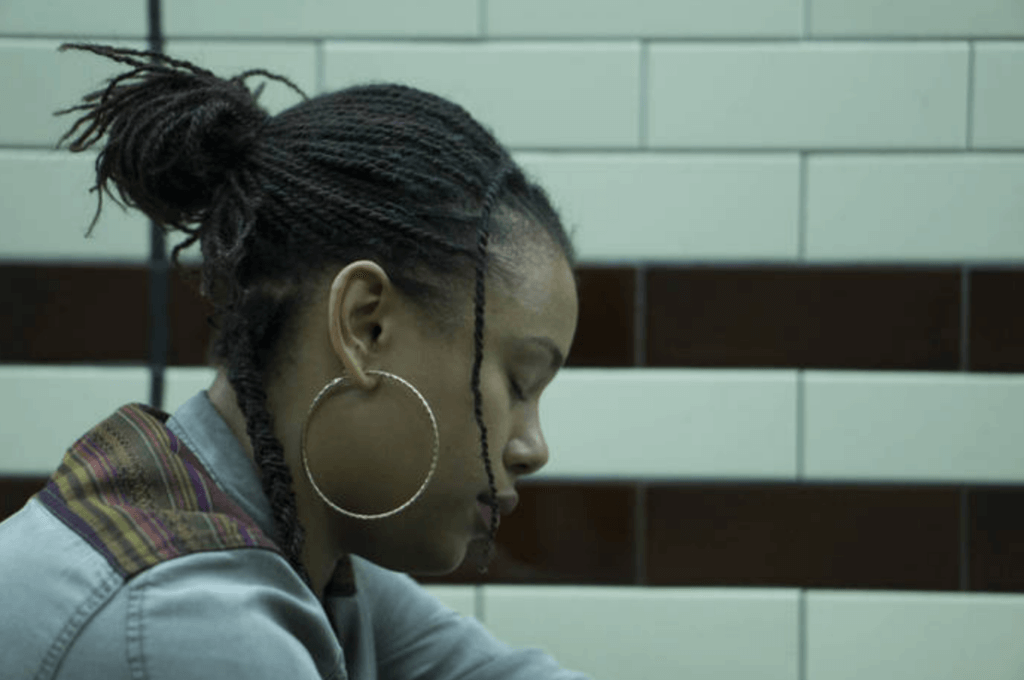Some artists make music. Others make a point. Amy True does both, and then burns the blueprint.
Featured on the cover of I Am Hip Hop Magazine way back on Issue 2, Amy True is more than a face for the culture, she’s its unapologetic voice, sharpened by years of spit, struggle, and sovereignty. For those who’ve followed her arc, from South London cipher killer to fully formed independent force, the spotlight feels overdue, but never undeserved. She’s not a breakout star, she’s a built-from-brick artist who never left the foundation.
In an industry still addicted to mimicry, male co-signs, and viral gimmicks dressed as authenticity, Amy True is a necessary disruption, a woman who raps like she means it, moves like she owns it, and builds like she’s here for the long haul. No borrowed aesthetics. No label puppeteering. No TikTok-ready stunts. Just bars, brain, and bravery, the holy trinity of true MCing.
Her name rings out in UK circles, hip hop lineups, conscious rap collectives, but she fits nowhere neatly. And that’s the point. Amy True is genre-fluid, artistically protean, but principle-rooted. Her flows bounce from introspective to incantational, grounded in sharp-eyed social commentary and the kind of spiritual depth most rappers wouldn’t dare brush up against. She’s an artist who can discuss Babylon and badman culture in the same verse, and somehow stitch it all together with ancient wisdom and modern rage.
What sets her apart, and keeps her apart, is her lyricism. This isn’t just technical prowess (though she’s got that in abundance). It’s the density. The clarity. The intentionality. Amy writes with the kind of precision that demands a rewind. This is no accident. Her bars are packed with references to global struggle, resistance theory, ancestral trauma, and sacred energy, filtered through lived experience and delivered with fierce clarity.
A verse from Amy can do what some political manifestos fail to, name the problem, hold it to account, and still leave room for healing.
And then there’s the courage. Amy doesn’t just flirt with social issues for activist points. She steps into them. She names them. She stays with them. From police brutality and imperialism to the systemic silencing of women, she engages these themes without compromise, without sanitisation, and without ever turning pain into performance. Her courage isn’t aesthetic, it’s structural. It’s in how she moves through the scene, how she builds independently, how she refuses to dilute her message for palatability.
Listen to tracks like Expectations and Healthy Love or her work with Caxton Press, and you’re not just hearing rhymes, you’re hearing the blueprint for a different kind of rap career, one that resists industry-standard submission and instead insists on sovereignty. This is hip hop as healing ritual, as battle cry, as street sermon. Amy True doesn’t just make music. She makes moments of clarity in a world hell-bent on distortion.
She’s performed alongside legends, but never needed to ride shotgun to their legacy. Her collaborations are chosen, not clout-chased. Her co-signs are real, earned, not bought. She doesn’t wait to be handed a mic. She builds her own sound system.
And crucially, she’s independent. Not just in the ‘unsigned artist’ sense, but in the deeper, ideological sense. Her independence is intellectual, emotional, political. In a time where ‘indie’ is often a marketing ploy for major label scaffolding, Amy is the real thing, self-penned, self-managed, self-funded. She’s DIY to the marrow. No managers whispering in her ear to soften the message. No streaming consultants telling her when to drop. She moves by her own cosmic clock, and the result is a body of work that feels earned, not engineered.
Why does that matter?
Because visibility still plays favourites. Because women, especially outspoken, politically literate, spiritually attuned women, still get sidelined in a scene they helped shape. Because conscious female lyricists are still treated like niche acts, or worse, reduced to tokenism at male-led events. Amy True doesn’t ask for a seat at the table. She questions the whole damn table, then builds her own.
While some rap careers are built on illusion, the hype machine, the borrowed identity, the smoke and (sound) mirrors, Amy True’s has been built the hard way, with integrity, sacrifice, and a refusal to compromise her message. She’s the opposite of hollow virality. She’s what happens when you build slowly, intentionally, spiritually, and let your work speak for itself.
Amy True isn’t just important to the game. She is the counter-narrative to a game that too often rewards conformity and punishes depth. She doesn’t just represent what hip hop could be, she embodies what it always was at its best: urgent, unfiltered, brave.
She’s a return to essence, but with her own weather system. She doesn’t just rap. She restores. She reminds. She resists.
In an age of fast fame, here is a woman building slowly, and building well. A woman who spits truth from the stomach. A woman who never needed permission, just a mic, a mission, and her own momentum.
And in a world full of imitations, Amy True is exactly what she says she is.
True.
Discover Amy True’s music HERE
Micky Roots
Latest posts by Micky Roots (see all)
- SINEAD O’CONNOR, THE REBEL HEART THAT BEAT IN HIP-HOP TIME — August 19, 2025
- TRUE TO THE GAME: WHY AMY TRUE IS THE ARTIST WE NEED — July 11, 2025
- REVIEW | GHETTS AT SOUTHBANK CENTRE, MASTERY IN MOTION — June 26, 2025

